SIMULIA Abaqus
Get Pricing Sent to You Today
While you are waiting, check out our Resource Center or read our Blog!

Advanced Finite Element Analysis (FEA) From SIMULIA
SIMULIA Abaqus offers a powerful solution that can help you solve both routine and complex engineering problems across a broad range of industrial applications. Leverage the robust capabilities of Abaqus to lessen your dependency on physical testing, reduce costs, and ensure optimum product performance.
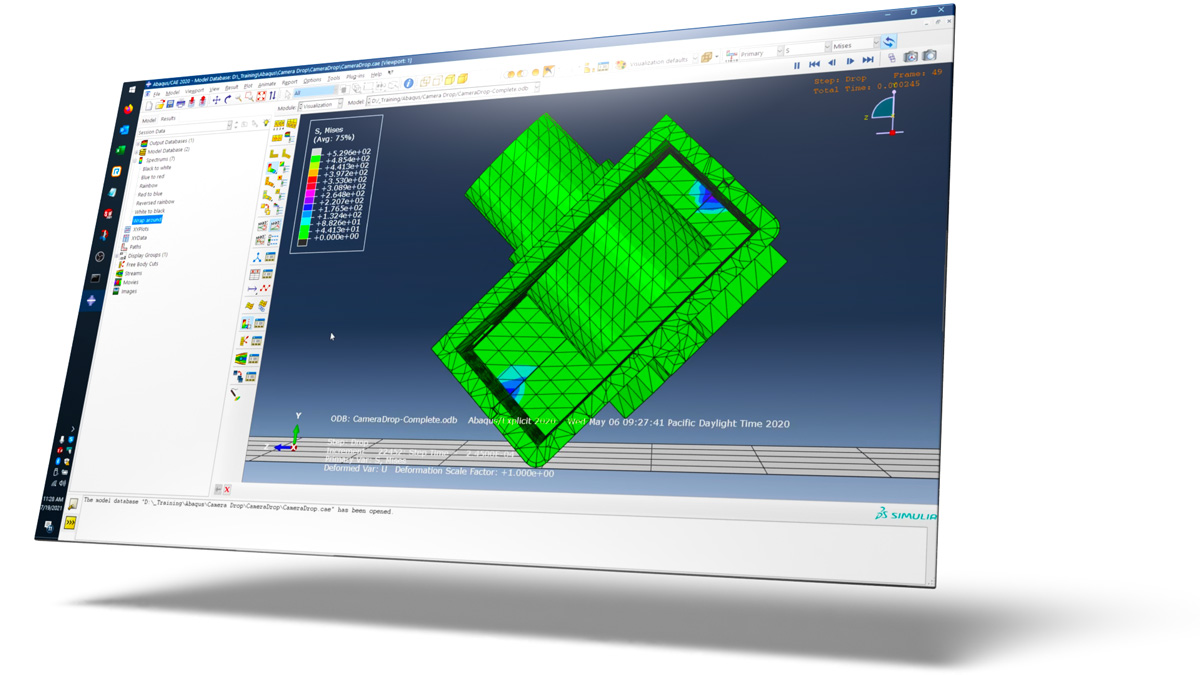
Key Features & Benefits
|
Features
|
SIMULIA Abaqus
|
|---|---|
|
Nonlinear Analysis
|
Account for large displacements, material nonlinearities, and boundary nonlinearities such as contact and friction
|
|
Contact Modeling
|
Robust contact modeling capabilities including general contact to automatically detect interactions
|
|
Implicit Dynamics
|
Natural frequency extraction, complex eigenvalue extraction, steady-state dynamics, transient model dynamics, response spectrum, random response
|
|
Explicit Dynamics
|
Model high-speed dynamic events and extreme deformations
|
|
Fatigue
|
Use the direct cyclic approach to model progressive damage and failure
|
|
Buckling
|
Simulate local instabilities to visualize buckling and collapse
|
|
Thermal
|
Solve coupled thermal, electrical, and structural behavior
|
|
Acoustics
|
Simulate waves in fluids to model sound propagation or shock effects on structures
|
|
Electromagnetics
|
Simulate piezoelectric, electrical conduction, and electromagnetic phenomena
|
|
Fluid-Structure Interaction
|
Simulate gases and liquids with a variety of techniques including coupled Eulerian-Lagrangian (CEL), smoothed particle hydrodynamics (SPH), and co-simulation with CFD software
|
|
Advanced Material Models
|
Simulate the realistic behavior of metals, polymers, composites, biological tissue, and more
|
|
Damage Modeling and Fracture Mechanics
|
Predict failure of complex materials
|
|
Comprehensive Meshing
|
An extensive library of mesh element types and sophisticated approaches for mesh creation
|
|
Associative Geometry
|
Associative interfaces for SOLIDWORKS and other CAD systems enable rapid analysis iterations
|
|
Advanced Material Models
|
Simulate the realistic behavior of metals, polymers, composites, biological tissue, and more
|
Putting It to the Test With SIMULIA Abaqus
Without test engineers, we wouldn’t have safe and reliable products on the market. One engineer in particular has been influential in shock vibration and fatigue testing since the 70s, when analysis computers filled a room.
Nigel Linden’s expertise has helped develop the tools that are used in data collection, analysis and modeling today.
Simulation Resources
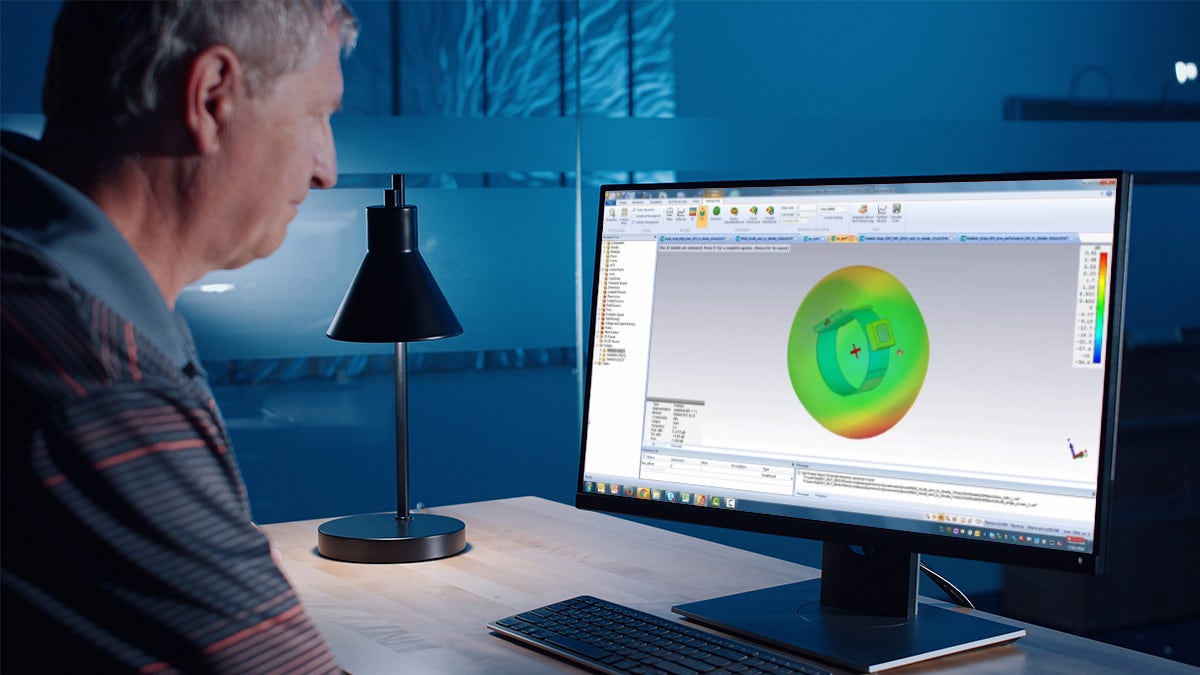
Powerful Electromagnetic Simulation on the Cloud
Watch Video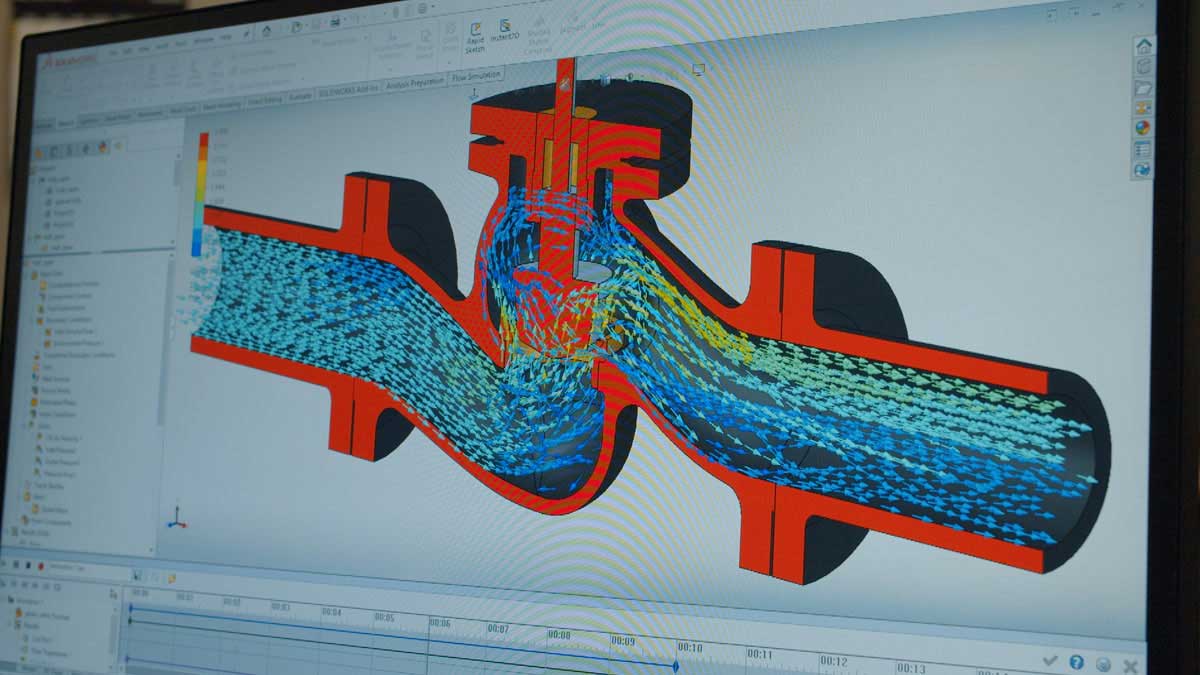
End-To-End Simulation Handbook
Download Guide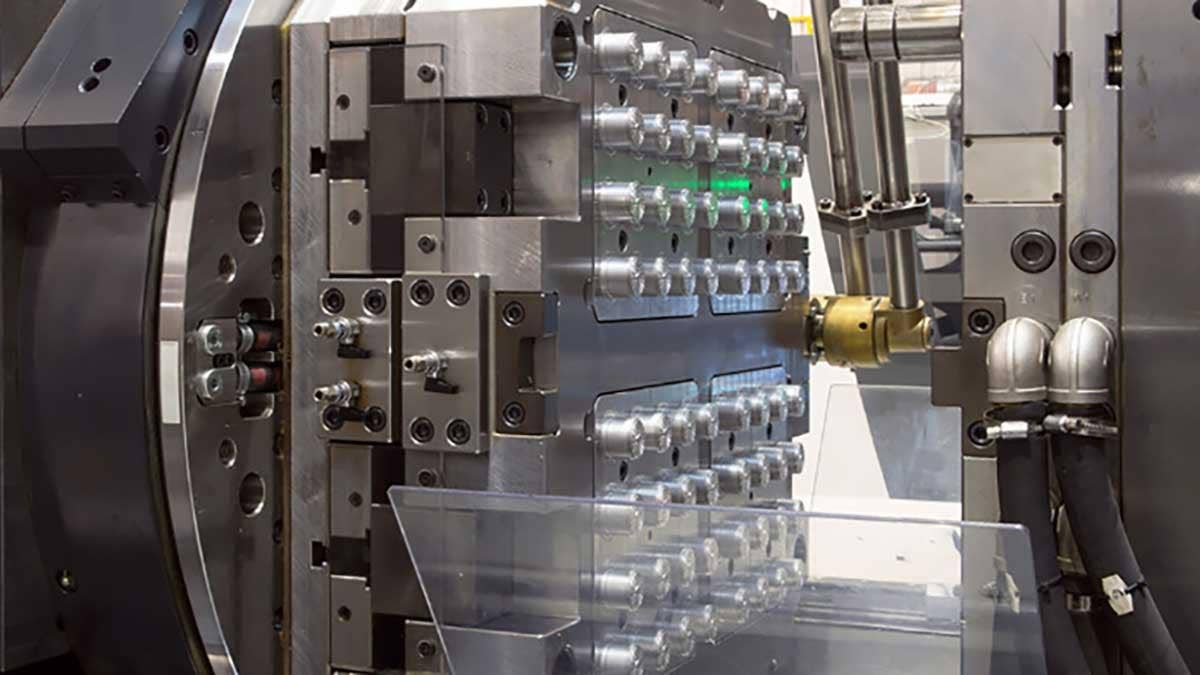
Confidently Design Quality Plastic Parts
Watch Video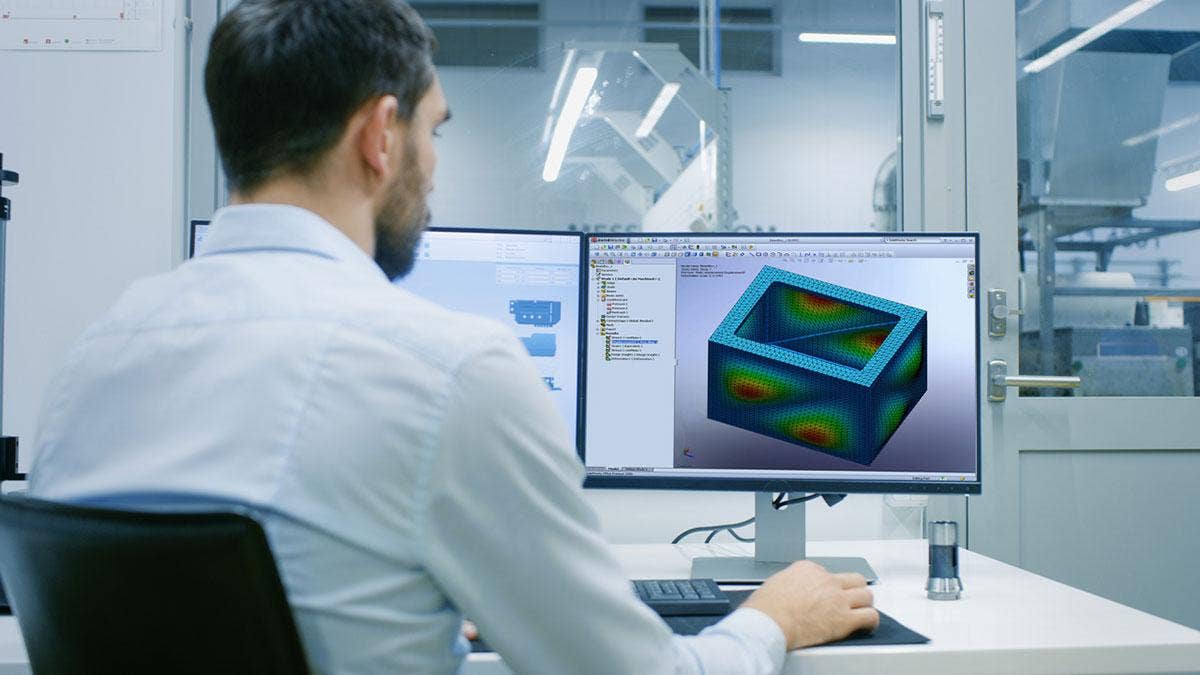
Quickly Predict Your Design’s Real-World Behaviors
Watch VideoFrequently Asked Questions
Yes. Abaqus provides robust multiphysics capabilities, including thermal-stress, thermal-electrical, low-frequency electromagnetics, structural-acoustics, and more.
These are two different methods for solving FEA problems. The implicit solution technology in Abaqus/Standard is ideal for solving static and low-speed dynamic events, such as sealing pressure in a gasket joint or crack propagation in a composite airplane fuselage. The explicit solution technology employed by Abaqus/Explicit is well-suited for high-speed dynamic events, such as consumer electronics drop testing, automotive crashes, and ballistic impact.
It can be challenging and tedious to predict and define all the possible contacting surfaces in a simulation. Abaqus uses “general contact” to automatically detect contact between different bodies, dramatically reducing missed contact definitions and time required to define contact in complex assemblies.
Yes. Abaqus provides an associative interface for importing SOLIDWORKS models. You can easily update your simulation with any changes to your SOLIDWORKS model, enabling rapid iteration.
Both perpetual licensing (with subscription) and term licensing are available. The main licensing variable is the quantity of tokens you require (see next question).
Abaqus uses token-based licensing for running simulations. The quantity of tokens required depends on the number of CPU cores used. Running jobs on multiple CPUs can significantly reduce the computation time. Therefore, the number of tokens you need depends on the computer hardware you have, the size and complexity of your simulation, and how quickly you need results.
Abaqus extended licensing can also provide access to additional capabilities – fe-safe for fatigue analysis, Isight for parametric optimization, and Tosca for topology and shape optimization.
Services & Customer Benefits
Technical Support
Unmatched Training
Onboarding
We provide comprehensive onboarding and mentoring for SIMULIA Abaqus. From software installation to setting up your first analysis, we’ll guide you through every detail for your success.
Professional Services
Leverage the expertise of our simulation team through in-depth consulting on your next project. We can assist you in developing your strategy and analysis approach to ensure the accuracy of your results.
